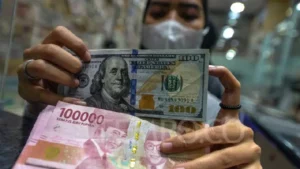In a bold move to stabilize its currency, Bank Indonesia announced a critical adjustment to its monetary policy on Wednesday.
The central bank lifted its benchmark seven-day reverse repo rate by 25 basis points, setting it at 6.25%.
This initiative marks the first rate hike since October of the previous year, aimed directly at supporting the weakening rupiah and managing rising inflation pressures.
Governor Perry Warjiyo emphasized the need to strengthen the rupiah, which had dropped to around 16,000 against the dollar.
Under his stewardship, the bank has pledged to keep inflation between 1.5% and 3.5% in the ensuing years.

This preemptive measure comes amid unexpected economic forecasts, with most analysts previously predicting steady rates. However, a minority had anticipated this proactive hike.
The move surprised many, as it diverged from broader economic expectations.
It forms part of a larger strategy to not only uplift the rupiah but also to curb inflation, which climbed to 3.05% in March from 2.75% the month prior.
The central bank hiked overnight deposit and lending rates by 25 basis points to 5.50% and 7.00%, respectively.
This tactical decision reflects a regional trend where Southeast Asian banks have generally held steady despite economic fluctuations.
Despite some skepticism about the impact of a modest quarter-point rise, this increase is seen as crucial for building a competitive edge.
It also helps bolster economic confidence amid challenges posed by a strong dollar and rising inflation prospects.
Governor Warjiyo remains committed to currency stability, employing foreign exchange interventions, among other strategies.
He projected that this rate enhancement would fortify the rupiah to 16,000 by the third quarter and 15,800 by year’s end.

